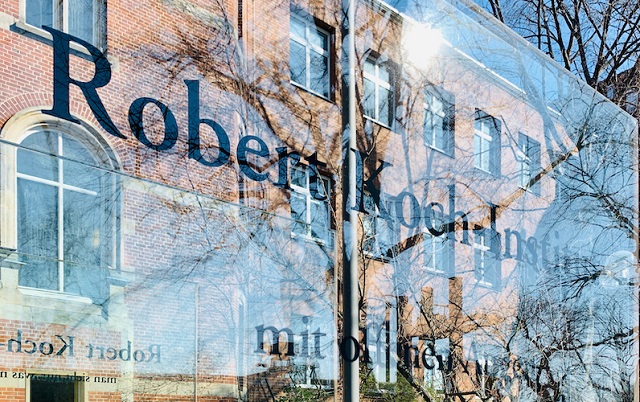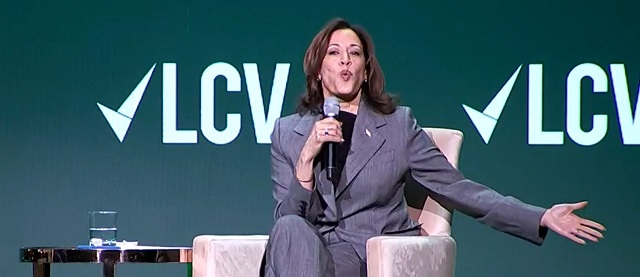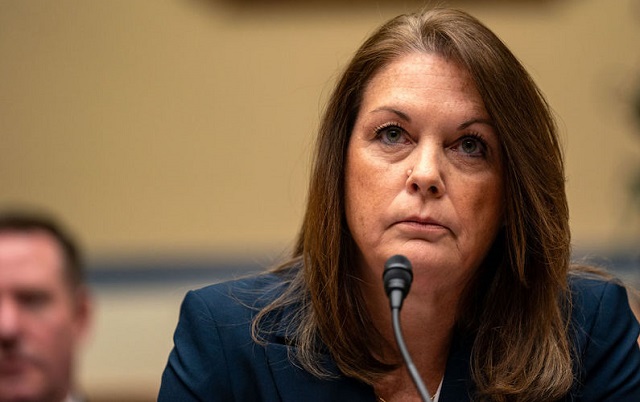Alberta
Intentional Living, Everyday Activism and Tea – Sarjesa Inc.

Activism is all around us. As witnessed by the entire world this past summer, even the smallest of intentional actions can have ripple effects that reach far beyond individual communities.
 A young entrepreneur from Calgary, Alberta is using tea to effect positive change in the city and beyond. Alexandra Daignault is the founder and owner of Sarjesa Inc., a socially focused tea company dedicated to supporting violence prevention programming and aiding marginalized women in Canada. Guided by an unwavering commitment to equality and Indigenous recognition, Sarjesa is a manifestation of Daignault’s own core values, as well as her lived experience as a woman of Indo-Caribbean descent.
A young entrepreneur from Calgary, Alberta is using tea to effect positive change in the city and beyond. Alexandra Daignault is the founder and owner of Sarjesa Inc., a socially focused tea company dedicated to supporting violence prevention programming and aiding marginalized women in Canada. Guided by an unwavering commitment to equality and Indigenous recognition, Sarjesa is a manifestation of Daignault’s own core values, as well as her lived experience as a woman of Indo-Caribbean descent.
 Sarjesa was founded in December 2017, during Alexandra’s 3rd year at Mount Royal University, while she pursued a degree in English with a double minor in Indigenous Studies and Innovation & Entrepreneurship. The name Sarjesa is Alexandra’s own invention, inspired, in part, by her post-colonial theory books and conversations with her grandmother.
Sarjesa was founded in December 2017, during Alexandra’s 3rd year at Mount Royal University, while she pursued a degree in English with a double minor in Indigenous Studies and Innovation & Entrepreneurship. The name Sarjesa is Alexandra’s own invention, inspired, in part, by her post-colonial theory books and conversations with her grandmother.
“Sarjesa is about bringing activism into everyday experience,” says Alexandra, “Doing things on purpose. If we want to make long standing change, we need to be intentional.”
The Sarjesa website and email signature feature a land acknowledgement adapted from Dr. Renae Watchman, an individual whose activism Alexandra cites as inspiration for her own work.
We are a Non-Indigenous brand and company. We blend our tea on Treaty 7 territory, located on the homelands of the Niitsitapi (the Siksika, Piikani, Kainai), the Îyârhe Nakoda, and Tsuut’ina Nations, as well as Métis Nation Region 3. As an organization, run by an Indo Caribbean Settler woman, we acknowledge the treaty relations that have not been honoured and work daily to restore good relations. We try to respect all people and the planet through the creation of highly intentional products.
– Land Acknowledgment featured on Sarjesa website & email signature
 From ingredient sourcing, to hiring practices, to charitable donations, every aspect of Sarjesa has been carefully articulated to have an intentional, positive social impact. To exist in harmony with the land and the communities upon it, all teas are composed of both locally sourced and certified fair trade ingredients. Each box features information on Canadian Missing and Murdered Indigenous Women, and 20% of profits from each box of Sarjesa tea sold are donated to the Awo Taan Healing Lodge Society, an Indigenous-led women’s shelter based out of Calgary.
From ingredient sourcing, to hiring practices, to charitable donations, every aspect of Sarjesa has been carefully articulated to have an intentional, positive social impact. To exist in harmony with the land and the communities upon it, all teas are composed of both locally sourced and certified fair trade ingredients. Each box features information on Canadian Missing and Murdered Indigenous Women, and 20% of profits from each box of Sarjesa tea sold are donated to the Awo Taan Healing Lodge Society, an Indigenous-led women’s shelter based out of Calgary.
According to Alexandra, her decision to establish a charitable partnership with Awo Taan Healing Lodge Society was inspired by her admiration of their practices, their ability to create a healing space for women and children in need, and the vast knowledge and expertise of their team.
As a young entrepreneur immersed in the fast-paced culture of the start-up industry, Alexandra remains committed to serving the community and focusing on what matters most. “There’s no rush to make it a huge tea corporation,” she says, “It’s important we continue to learn, grow organically, and do the work in a good way.” Beyond the scope of Sarjesa tea, Alexandra encourages everyone to live an intentional life. Whether it is the food you eat, the products you buy, the way you interact with the environment … there are countless small ways to effect positive change. “Be gentle with yourself,” she says, “Recognize that while maybe you can’t make all the good decisions you want all at once, you can be very intentional about the decisions you do make, and why.”
For more information on Sarjesa Tea, visit https://sarjesa.com.
For more stories, visit Todayville Calgary.
Alberta
Alberta awash in corporate welfare

From the Fraser Institute
By Matthew Lau
To understand Ottawa’s negative impact on Alberta’s economy and living standards, juxtapose two recent pieces of data.
First, in July the Trudeau government made three separate “economic development” spending announcements in Alberta, totalling more than $80 million and affecting 37 different projects related to the “green economy,” clean technology and agriculture. And second, as noted in a new essay by Fraser Institute senior fellow Kenneth Green, inflation-adjusted business investment (excluding residential structures) in Canada’s extraction sector (mining, quarrying, oil and gas) fell 51.2 per cent from 2014 to 2022.
The productivity gains that raise living standards and improve economic conditions rely on business investment. But business investment in Canada has declined over the past decade and total economic growth per person (inflation-adjusted) from Q3-2015 through to Q1-2024 has been less than 1 per cent versus robust growth of nearly 16 per cent in the United States over the same period.
For Canada’s extraction sector, as Green documents, federal policies—new fuel regulations, extended review processes on major infrastructure projects, an effective ban on oil shipments on British Columbia’s northern coast, a hard greenhouse gas emissions cap targeting oil and gas, and other regulatory initiatives—are largely to blame for the massive decline in investment.
Meanwhile, as Ottawa impedes private investment, its latest bundle of economic development announcements underscores its strategy to have government take the lead in allocating economic resources, whether for infrastructure and public institutions or for corporate welfare to private companies.
Consider these federally-subsidized projects.
A gas cloud imaging company received $4.1 million from taxpayers to expand marketing, operations and product development. The Battery Metals Association of Canada received $850,000 to “support growth of the battery metals sector in Western Canada by enhancing collaboration and education stakeholders.” A food manufacturer in Lethbridge received $5.2 million to increase production of plant-based protein products. Ermineskin Cree Nation received nearly $400,000 for a feasibility study for a new solar farm. The Town of Coronation received almost $900,000 to renovate and retrofit two buildings into a business incubator. The Petroleum Technology Alliance Canada received $400,000 for marketing and other support to help boost clean technology product exports. And so on.
When the Trudeau government announced all this corporate welfare and spending, it naturally claimed it create economic growth and good jobs. But corporate welfare doesn’t create growth and good jobs, it only directs resources (including labour) to subsidized sectors and businesses and away from sectors and businesses that must be more heavily taxed to support the subsidies. The effect of government initiatives that reduce private investment and replace it with government spending is a net economic loss.
As 20th-century business and economics journalist Henry Hazlitt put it, the case for government directing investment (instead of the private sector) relies on politicians and bureaucrats—who did not earn the money and to whom the money does not belong—investing that money wisely and with almost perfect foresight. Of course, that’s preposterous.
Alas, this replacement of private-sector investment with public spending is happening not only in Alberta but across Canada today due to the Trudeau government’s fiscal policies. Lower productivity and lower living standards, the data show, are the unhappy results.
Author:
Alberta
‘Fireworks’ As Defence Opens Case In Coutts Two Trial

From the Frontier Centre for Public Policy
By Ray McGinnis
Anthony Olienick and Chris Carbert are on trial for conspiracy to commit murder and firearms charges in relation to the Coutts Blockade into mid-February 2022. In opening her case before a Lethbridge, AB, jury on July 11, Olienick’s lawyer, Marilyn Burns stated “This is a political, criminal trial that is un Canadian.” She told the jury, “You will be shocked, and at the very least, disappointed with how Canada’s own RCMP conducted themselves during and after the Coutts protest,” as she summarized officers’ testimony during presentation of the Crown’s case. Burns also contended that “the conduct of Alberta’s provincial government and Canada’s federal government are entwined with the RCMP.” The arrests of the Coutts Four on the night of February 13 and noon hour of February 14, were key events in a decision by the Clerk of the Privy Council, Janice Charette, and the National Security Advisor to the Prime Minister, Jody Thomas, to advise Prime Minister Justin Trudeau to invoke the Emergencies Act. Chief Justice Paul Rouleau, in submitting his Public Order Emergency Commission Report to Parliament on February 17, 2023, also cited events at the Coutts Blockade as key to his conclusion that the government was justified in invoking the Emergencies Act.
Justice David Labrenz cautioned attorney Burns regarding her language, after Crown prosecutor Stephen Johnson objected to some of the language in the opening statement of Olienick’s counsel. Futher discussion about the appropriateness of attorney Burns’ statement to the jury is behind a publication ban, as discussions occurred without the jury present.
Justice Labrenz told the jury on July 12, “I would remind you that the presumption of innocence means that both the accused are cloaked with that presumption, unless the Crown proves beyond a reasonable doubt the essential elements of the charge(s).” He further clarified what should result if the jurors were uncertain about which narrative to believe: the account by the Crown, or the account from the accused lawyers. Labrenz stated that such ambivalence must lead to an acquittal; As such a degree of uncertainty regarding which case to trust in does not meet the “beyond a reasonable doubt” threshold for a conviction.”
On July 15, 2024, a Lethbridge jury heard evidence from a former employer of Olienicks’ named Brian Lambert. He stated that he had tasked Olienick run his sandstone quarry and mining business. He was a business partner with Olienick. In that capacity, Olienick made use of what Lambert referred to as “little firecrackers,” to quarry the sandstone and reduce it in size. Reducing the size of the stone renders it manageable to get refined and repurposed so it could be sold to buyers of stone for other uses (building construction, patio stones, etc.) Lambert explained that the “firecrackers” were “explosive devices” packaged within tubing and pipes that could also be used for plumbing. He detailed how “You make them out of ordinary plumbing pipe and use some kind of propellant like shotgun powder…” Lambert explained that the length of the pipe “…depended on how big a hole or how large a piece of stone you were going to crack. The one I saw was about six inches long … maybe an inch in diameter.”
One of Olienick’s charges is “unlawful possession of an explosive device for a dangerous purpose.” The principal evidence offered up by RCMP to the Crown is what the officers depicted as “pipe bombs” which they obtained at the residence of Anthony Olienick in Claresholm, Alberta, about a two-hour drive from Coutts. Officers entered his home after he was arrested the night of February 13, 2022. Lambert’s testimony offers a plausible common use for the “firecrackers” the RCMP referred to as “pipe bombs.” Lambert added, these “firecrackers” have a firecracker fuse, and in the world of “explosive” they are “no big deal.”
Fellow accused, Chris Carbert, is does not face the additional charge of unlawful possession of explosives for a dangerous purpose. This is the first full week of the case for the defence. The trial began on June 6 when the Crown began presenting its case.
Ray McGinnis is a Senior Fellow with the Frontier Centre for Public Policy who recently attended several days of testimony at the Coutts Two trial.
-

 National1 day ago
National1 day agoLiberals offer no response as Conservative MP calls Trudeau a ‘liar’ for an hour straight
-

 COVID-191 day ago
COVID-191 day agoLeaked documents: German gov’t lied about shots preventing COVID, knew lockdowns did more harm than good
-

 Economy1 day ago
Economy1 day agoKamala Harris’ Energy Policy Catalog Is Full Of Whoppers
-

 International1 day ago
International1 day agoSwitzerland’s new portable suicide ‘pod’ set to claim its first life ‘soon’
-

 Business1 day ago
Business1 day agoFederal government seems committed to killing investment in Canada
-

 International20 hours ago
International20 hours agoHouse Passes Bipartisan Resolution Establishing Trump Assassination Attempt Task Force
-

 Crime9 hours ago
Crime9 hours agoEverything you need to know about the failed assassination attempt of Donald Trump
-

 Alberta1 day ago
Alberta1 day ago‘Fireworks’ As Defence Opens Case In Coutts Two Trial





